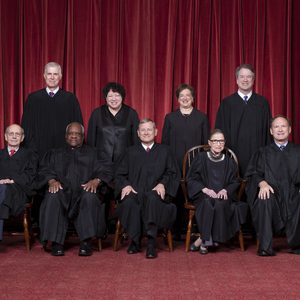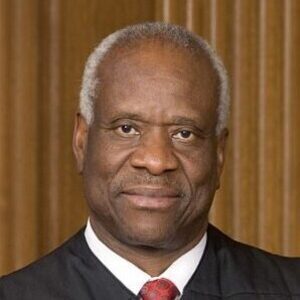
The cases could have sweeping implications for federal non-discrimination laws and could impact earlier decisions like Price Waterhouse v. Hopkins that prohibit employers from discriminating in employment based on how they expect a person to act or dress on the basis of their sex. The cases, and the circuit court decisions that led them to the Supreme Court, are detailed below:
In Harris Funeral Homes v. EEOC, a transgender woman, Aimee Stephens, was fired from her position at a Michigan funeral home because of the owner’s belief that sex and gender are permanent and immutable. An en banc panel of the Sixth Circuit appealed to Price Waterhouse v. Hopkins to rule that, even if it is the owner’s earnest belief that Stephens is a man, failing to act or dress in a way they expect of a man is sex discrimination, as per Hopkins. The owners argued that it would violate their free exercise of religion to allow Stephens to present to the public as a woman. The Sixth Circuit did not find this argument persuasive and ruled that Title VII also covers a person’s status as transgender because this cannot be understood apart from the person’s biological sex.
In Bostock v. Clayton County, Georgia, the plaintiff, Gerald Bostock, was fired from his job as a social worker with Clayton County after coming out and mentioning his involvement in a gay recreational softball league. The firing came after years of positive performance reviews and supervisors made disparaging remarks about Bostock’s sexual orientation in the weeks leading to the firing. The Eleventh Circuit previously ruled in 1979, and affirmed in 2017, that sexual orientation is not covered under Title VII of the Civil Rights Act and noted that it could not change its ruling without the entire circuit bench agreeing or a Supreme Court ruling overturning it. This case has been combined with Altitude Express v. Zarda, a similar case from the Second Circuit, where that court ruled that discrimination on the basis of sexual orientation is inherently a violation of Title VII because the employer in question would probably not fire a woman for being attracted to men, so the reason for their discrimination is based on sex. The Seventh Circuit made a similar decision in a separate case in 2017. This has caused a “circuit split” on the application of Title VII to LGBT individuals.
When circuit courts disagree on interpreting the law, the Supreme Court usually takes up the case to make a final decision for the nation. This recently happened when circuit courts disagreed if preventing members of the same sex from marrying violated their constitutional guarantee of “equal protection of the laws” without due process or a compelling government interest against it. The Supreme Court ultimately resolved the split in the 5-4 opinion of Obergefell v. Hodges that legalized same-sex marriage nationwide in 2015.
The Court’s composition has changed since the Obergefell decision. President Trump nominated Justice Neil Gorsuch to the Court early in his term after Justice Antonin Scalia died in February 2016. The crucial swing vote on Obergefell, Justice Anthony Kennedy, retired in 2018 and was ultimately replaced by Justice Brett Kavanaugh. Both Gorsuch and Kavanaugh are noted for their originalist approach to law, which suggests that laws must be interpreted according to the way those words were commonly understood when the law was passed. Because of this, several LGBT rights organizations, including the Human Rights Campaign and the ACLU, have raised the alarm with their supporters and filed amicus curiae briefs urging the court not to allow LGBT discrimination. Conservative legal groups, including the Alliance Defending Freedom, Focus on the Family, and the Federalist Society, argue that while they are opposed to discrimination, a business owner’s right to free association in hiring and firing employees or their right to run a business in accordance with their religious beliefs must be protected, even if this could cause some people to be discriminated against in the short term.
At least one conservative scholar has suggested that passing a federal law that prohibits discrimination on the basis of sexual orientation or gender identity, with possible exceptions for religious convictions, would be a valid way of resolving the conflict. Tim Schultz of the 1st Amendment Partnership proposes federal laws to end legal discrimination for LGBT people, but asks that these laws should leave an exemption for people whose religious beliefs compel them not to participate. Change, Schultz hopes, will come over time through societal shifts. Although some minor exceptions for race-based discrimination still exist, such as renting a room in a shared home, racial discrimination is so socially unacceptable that almost no one attempts it anymore. Schultz and others hope that, with time, discrimination against LGBT people will become similarly socially unacceptable even if it technically remains legal.
Another conservative approach can come from federalism. Because the states possess an inherent power to make and enforce their own laws, the issue could be resolved without using federal power. This approach has won some success at the state level but faces issues similar to those seen in the passage of the original Civil Rights Act in the 1960s. In 28 states, discrimination on both sexual orientation and gender identity is banned in both public and private employment by law. While there has been rapid social change on LGBT acceptance, critics of this strategy point out that it took Supreme Court cases to end state laws requiring school segregation (Brown v. Board of Education, 1954), or prohibiting interracial marriage (Loving v. Virginia, 1967), same-sex activity (Lawrence v. Texas, 2003), and same-sex marriage (Obergefell). Some states like Texas and Georgia were on the losing side of all four decisions, even 50+ years apart. Other critics on the right allege that the federal government does not have the power to set employment or civil rights law for the states and that there is no explicit constitutional right to have a job or be served by a private business.
In addition, there is relatively little bipartisan agreement within Congress that a law to expand the Civil Rights Act to LGBT issues should be passed or, if one were passed, what it would cover and what exemptions, if any, it would have for religious belief. The Republican Party’s 2016 platform stated, “[t]raditional marriage and family, based on marriage between one man and one woman, is the foundation for a free society and has for millennia been entrusted with rearing children and instilling cultural values,” and that “We support the right of the people to conduct their businesses in accordance with their religious beliefs and condemn public officials who have proposed boycotts against businesses that support traditional marriage.” Given these statements, it seems unlikely that President Trump would sign such a bill if one made it to his desk. In early 2019, the House passed an “Equality Act” on a mainly party-line vote, but the bill has not been brought to a vote in the Senate. For the moment, both LGBT groups and religious freedom organizations will be following these cases intently as a battle of individual rights takes place.






